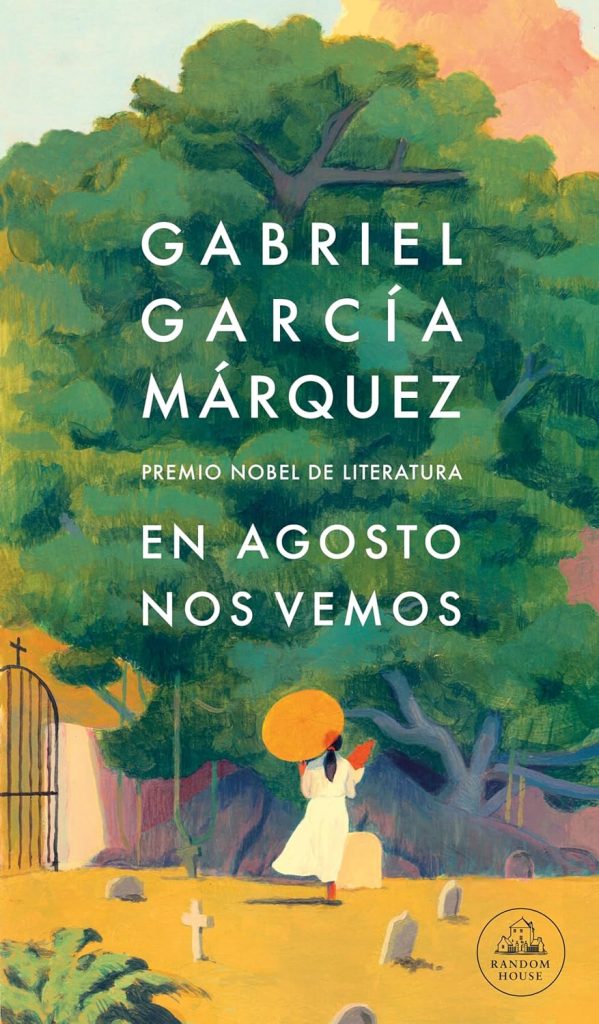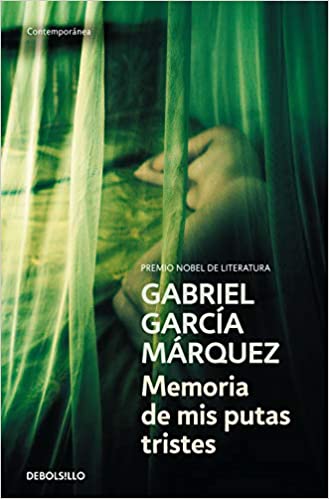In the history of literature there have been few essential storytellers, writers endowed with the ability to keep pace with the times and emotions of the world in its evolution. One of them is the already disappeared Gabriel Garcia Marquez; Gabo for all your readers.
I would not know how to define what it is that converts Gabo's narrative into something momentous beyond the commitment to labels, bombastic formalisms and official recognitions. What is truly important is how it found its way into so many readers who drew essential humanity from their works in that realism magic balanced in form and substance.
Reading returns us to our best human condition as we gain empathy and perspective so that our minds are able to analyze objectively or critically, as appropriate. Reading Gabriel García Márquez gives us much of that ability to enter the skins of the characters, for moments later to fly over the scenes in which they intervene, a kind of entrance and exit from which to contemplate the universe of any human relationship. Exquisite capacity for total empathy. It is a difficult task for me, then, when pointing out the 3 best Gabo books, thus I affect the subjective of my decision.
Three recommended novels by Gabriel García Márquez
One Hundred Years of Solitude
Possibly it is one of the novels in which it can be considered that its recommendation as a work for study in academic training is completely correct. The Universe is constricted under the pen of Gabo, a cosmos of characters in front of all kinds of situations and circumstances that encompass the most disparate dilemmas of the human being.
A plot that, despite its transcendence, moves in terms of a purely spoken novel, of a narrative that advances at a lively rhythm and that raises intrigue as well as questions, already universal conversations, existentialist meditations and descriptions of the most intense.
Summary: «Many years later, in front of the firing squad, Colonel Aureliano Buendía had to remember that remote afternoon when his father took him to see the ice. Macondo was then a village of twenty houses of mud and cañabrava built on the bank of a river with clear waters that rushed down a bed of polished stones, white and huge as prehistoric eggs.
The world was so recent that many things lacked names, and to mention them you had to point your finger at them. " With these words begins the now legendary novel in the annals of world literature, one of the most fascinating literary adventures of our century.
Millions of copies of One Hundred Years of Solitude read in all languages and the Nobel Prize for Literature crowning a work that had made its way "word of mouth" -as the writer likes to say- are the most palpable demonstration that the fabulous adventure of the Buendía-Iguarán family, with its miracles, fantasies, obsessions, tragedies, incests, adulteries, rebellions, discoveries and convictions, it represented at the same time the myth and the history, the tragedy and the love of the whole world.
A Chronicle of a Death Foretold
It is curious how a small work can acquire the weight and weight of a large construction. In this little story, in this reconstructed reality based on the story of third parties, details of the undeniable realism of our world can be seen, made up of subjectivities even in the face of an objective and unavoidable fact for all such as death.
Summary: The cyclical time, so used by García Márquez in his works, reappears here meticulously decomposed in each of its moments, neatly and exactly reconstructed by the narrator, who is giving an account of what happened a long time ago, that advances and recedes in his story and even arrives a long time later to tell the fate of the survivors.
The action is, at the same time, collective and personal, clear and ambiguous, and captures the reader from the beginning, even if he knows the outcome of the plot. The dialectic between myth and reality is enhanced here, once again, by a prose so charged with fascination that it elevates it to the frontiers of legend.
Love in the Time of Cholera
Only a genius like Gabo could present a story about love, not about love. Because the protagonist is that love with a multitude of definitions, showing transformations and learning, self-sacrifice and self-improvement. Not as a teaching for love but as a full vision of the feeling that can cover everything from falling in love to everyday love and the last shared breath. Except that in Gabo's hands the matter takes on, never better said, another dimension of the most unexpected.
The love story between Fermina Daza and Florentino Ariza, set in a small Caribbean port town over more than sixty years, could seem like a melodrama of disgruntled lovers who ultimately win by the grace of time and the strength of their own feelings, since García Márquez is pleased to use the most classic resources of traditional serials.
But this time -for once successive, and not circular-, this setting and these characters are like a tropical mixture of plants and clay that the master's hand molds and with which he fantasizes at his pleasure, to finally lead to the lands of myth and legend. The juices, smells and flavors of the tropics fuel a hallucinatory prose that this time reaches the oscillating port of the happy ending.
Other recommended books by Gabriel García Márquez…
See you in August
It is never too late to receive the gift of an unpublished work by one of the great masters of world narrative. Although doubts always arise about the reasons for not publishing it during his lifetime... Gabo may not have been entirely satisfied with this short novel. But how can we deprive ourselves of a discovery like this. Because beyond the best or worst final bill in terms of plot or style, there is always that aroma, perhaps in small nuances, to discover a small story that in the brief discovery of it tastes like traces of immortality...
Every August Ana Magdalena Bach takes the ferry to the island where her mother is buried to visit the tomb in which she lies. These visits end up being an irresistible invitation to become a different person for one night a year. Written in the unmistakable and fascinating style of García Márquez, See you in August It is a song to life, to the resistance of enjoyment despite the passage of time and to feminine desire. An unexpected gift for the countless Colombian Nobel readers.
Memory of my sad whores
A transgressive title and a work designed to expose the miseries of the human being. How unattainable it is to want what you no longer have and how mysterious and contradictory it is to discover that we are, a longing lost at all times.
Summary: An old journalist decides to celebrate his ninety years in style, giving himself a gift that will make him feel that he is still alive: a young virgin, and with her "the beginning of a new life at an age when most mortals are dead.
In the brothel the moment comes when he sees the woman from behind, completely naked. That event changes his life radically. Now that he meets this young woman, he is about to die, but not because he is old, but because of love. A) Yes, Memory of my sad whores tells the life of this lonely old man, passionate about classical music, not fond of pets and full of hobbies.
From him we will know how in all his sexual adventures (which were not few) he always gave some money in exchange, but he never imagined that that way he would find true love. This novel by Gabriel García Márquez is a moving reflection that celebrates the joys of falling in love, the misadventures of old age and, above all, what happens when sex and love come together to give meaning to existence.
We are faced with an apparently simple story but loaded with resonances, a story told with the exceptional style and mastery of the art of telling that only the Colombian author is capable of. Last edition:





